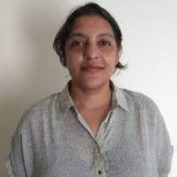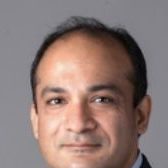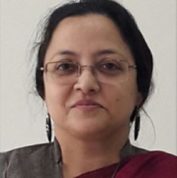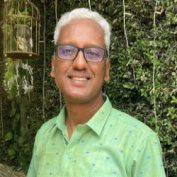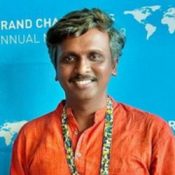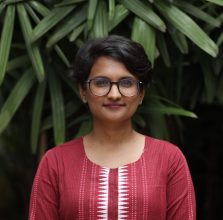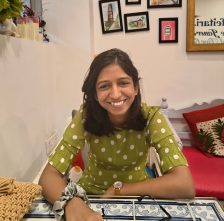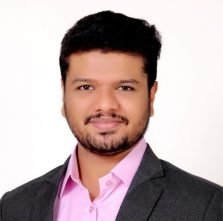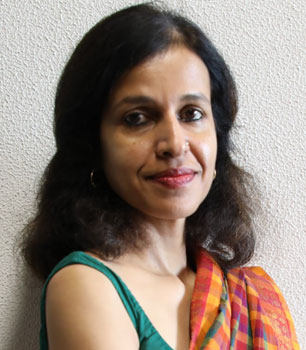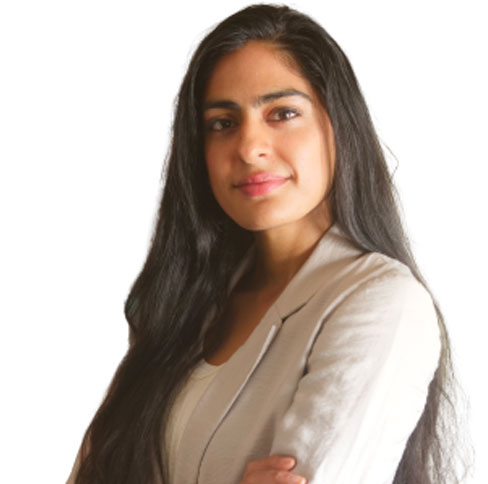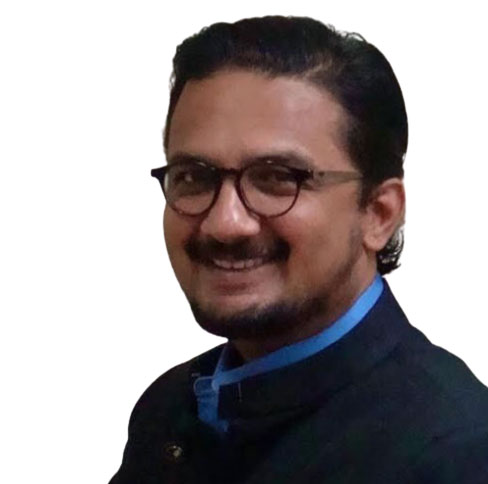Professional Executive and Development Programme In
Data Science For Social Impact 2024
for working professionals
Applications for this year's programme is closed now.
Applications for this year's programme is closed.

100% scholarships available for deserving candidates

20-week live and online programme with 10 courses

Online classes by faculty on Wednesdays and Saturdays

Hands-on practical sessions, guest lectures or topic-based sessions on Saturdays

Learning journey in two tracks - based on your goals

Includes a foundation course on prerequisite basic concepts

Online proctored mid-term and end-term exams
Data Science for Social Impact - 2024

Following the success of our inaugural cohort, we are pleased to announce the launch of the second cohort of the PEDP in Data Science for Social Impact. This pioneering programme seeks to train a group of social impact professionals in the techniques and tools of data science, with a focus on climate change, public health, and their intersection. Ashoka University has developed this programme as one of the founding members of data.org’s India Data Capacity Accelerator (IDCA) initiative, alongside J-PAL South Asia.
Hosted on the AshokaX platform and organized by the Centre for Data Sciences and Analytics (CDSA), the program faculty includes Prof Partha Pratim Das and other distinguished experts and practitioners from Ashoka University and other leading institutes and organisations. Ashoka University is offering a two-track program this year - 1) Data Science and Analytics for Social Impact, and 2) Data Science for Social Impact Management. The programme starts from 30th September and the foundation course starts from 9th September, 2024.
Programme Design

This online program will take place over 20 weeks from September 2024 to April 2025. It will consist of lectures, tutorials, a discussion forum, assignments, quizzes and project presentations, all conducted entirely online. The only in-person component of the program will be an end-of-term examination. This examination will be proctored at designated centres around the country. Arrangements will be flexible to account for any specific professional or personal constraints.
Program Highlights:
- 20-week live-online program with 9 courses, divided into two parts of 10 weeks each
- Online lectures by faculty during weekday evenings and Saturday mornings
- Online tutorial and/or doubt-clearing sessions by faculty and/or learning coordinators during Saturday afternoons
- Access to Learning Management System to enable flexible access to course materials, lecture videos and other study resources
- Discussion Forum for ongoing clarifications and ongoing support by Learning Coordinators
- Opportunity to bring in data problems from Learners’ own work areas to the class
- Opportunity to work on real-life datasets in collaboration with J-PAL and program partners
- 10 learners will have the opportunity to qualify for one-year fellowships or three-month internships, funded by J-PAL and organised by its partner organisations.
Programme Structure

Timings

Register to receive prospectus & application
Submit application with a
simple statement of purpose
Once selected, complete
joining formalities to join the Cohort
Core Programme Faculty & Sector Leads

Rita Kothari

Rita Kothari
Professor of English, Ashoka University
Director, MA in English Programme
Ph.D. Gujarat University
Rita Kothari is a multilingual scholar and translator whose work spans across different disciplines such as literature, cultural studies, anthropology, sociology, and history. Her questions emerge from observations of regions and communities in the western part of the Indian subcontinent—Gujarat, Kutch, and Sindh.
Her ethnographic research on marginal communities—through religion, caste, occupation, and gender—focuses upon narratives of identity, raising questions of both linguistic and cultural translation. Kothari has translated extensively from Gujarati and Sindhi into English, and occasionally vice versa. Her translations, as well as her edited volumes, have made significant contributions to the field of language politics and translation. Movement across languages, contexts, and cultures form the fulcrum of her interests, making translation the prism through which she sees the Indian context.
Her latest book, Uneasy Translations: Self, Experience and Indian Literature, interweaves her personal journey as an academic into reflections around self, language, and translation – with an eye upon the intangibly available category of experience. It is available here.

Rita Kothari
Professor of English, Ashoka University
Director, MA in English Programme
Ph.D. Gujarat University
Rita Kothari is a multilingual scholar and translator whose work spans across different disciplines such as literature, cultural studies, anthropology, sociology, and history. Her questions emerge from observations of regions and communities in the western part of the Indian subcontinent—Gujarat, Kutch, and Sindh.
Her ethnographic research on marginal communities—through religion, caste, occupation, and gender—focuses upon narratives of identity, raising questions of both linguistic and cultural translation. Kothari has translated extensively from Gujarati and Sindhi into English, and occasionally vice versa. Her translations, as well as her edited volumes, have made significant contributions to the field of language politics and translation. Movement across languages, contexts, and cultures form the fulcrum of her interests, making translation the prism through which she sees the Indian context.
Her latest book, Uneasy Translations: Self, Experience and Indian Literature, interweaves her personal journey as an academic into reflections around self, language, and translation – with an eye upon the intangibly available category of experience. It is available here.

Arvind Panagariya

Rita Kothari
Professor of English, Ashoka University
Director, MA in English Programme
Ph.D. Gujarat University
Rita Kothari is a multilingual scholar and translator whose work spans across different disciplines such as literature, cultural studies, anthropology, sociology, and history. Her questions emerge from observations of regions and communities in the western part of the Indian subcontinent—Gujarat, Kutch, and Sindh.
Her ethnographic research on marginal communities—through religion, caste, occupation, and gender—focuses upon narratives of identity, raising questions of both linguistic and cultural translation. Kothari has translated extensively from Gujarati and Sindhi into English, and occasionally vice versa. Her translations, as well as her edited volumes, have made significant contributions to the field of language politics and translation. Movement across languages, contexts, and cultures form the fulcrum of her interests, making translation the prism through which she sees the Indian context.
Her latest book, Uneasy Translations: Self, Experience and Indian Literature, interweaves her personal journey as an academic into reflections around self, language, and translation – with an eye upon the intangibly available category of experience. It is available here.

Arvind Panagariya
Professor of Economics and Jagdish Bhagwati Professor of
Indian Political Economy at Columbia University
PhD Princeton University
Arvind Panagariya is Professor of Economics and Jagdish Bhagwati Professor of
Indian Political Economy at Columbia University.
He served as the first Vice Chairman of the NITI Aayog, Government of India in the rank of a Cabinet Minister. During this time, he also served as India’s G20 Sherpa and led the Indian teams that negotiated the G20 Leaders’ Communiqués during presidencies of Turkey (2015), China (2016) and Germany (2017).
Professor Panagariya is a former Chief Economist of the Asian Development Bank and was on the faculty of the Department of Economics at the University of Maryland at College Park. During those years, he also worked with the World Bank, IMF and UNCTAD in various capacities.
Professor Panagariya is a prolific writer. He has authored or edited 20 books. The latest among them are Free Trade and Prosperity and India Unlimited. His book India: The Emerging Giant was listed as a top pick of 2008 by The Economist and described as the “definitive book on the Indian economy” by Fareed Zakaria of CNN. The Economist has described his book, Why Growth Matters, (with Jagdish Bhagwati) as “a manifesto for policymakers and analysts.”
Scientific papers by Professor Panagariya have appeared in the top economics journals while policy papers by him have appeared in the Foreign Affairs and Foreign Policy. He writes a monthly column in the Times of India and his guest columns have appeared in the Financial Times, Wall Street Journal and India Today.
In March 2012, the Government of India honoured Professor Panagariya with Padma
Bhushan, the third highest civilian honours the country bestows in any field.

Vinay Sitapati

Vinay Sitapati
Associate Professor, Political Science and Legal Studies, Ashoka University
Ph.D. Princeton University
Vinay Sitapati is a political scientist and award-winning author, recognized as one of Apolitical’s global ‘100 Most Influential Academics in Government’.
After beginning his career as a journalist with The Indian Express he earned his Ph.D. in Politics from Princeton University where he continues to serve as Visiting Professor of Political Science.
He is the author of two best-selling books. His first book Half-Lion, a biography of Indian Prime Minister P.V. Narasimha Rao, was also named "A Book of the Year” by The Economist. His latest book, Jugalbandi: BJP Before Modi, traces how the BJP came to power today through an analysis of its past leaders, Vajpayee and Advani.
He also writes extensively for national and international publications, where he analyzes laws, provides on-ground coverage of the elections and dissects political campaigns.
He is currently an Associate Professor of Political Science and Legal Studies at Ashoka University.

Vinay Sitapati
Associate Professor, Political Science and Legal Studies, Ashoka University
Ph.D. Princeton University
Vinay Sitapati is a political scientist and award-winning author, recognized as one of Apolitical’s global ‘100 Most Influential Academics in Government’.
After beginning his career as a journalist with The Indian Express he earned his Ph.D. in Politics from Princeton University where he continues to serve as Visiting Professor of Political Science.
He is the author of two best-selling books. His first book Half-Lion, a biography of Indian Prime Minister P.V. Narasimha Rao, was also named "A Book of the Year” by The Economist. His latest book, Jugalbandi: BJP Before Modi, traces how the BJP came to power today through an analysis of its past leaders, Vajpayee and Advani.
He also writes extensively for national and international publications, where he analyzes laws, provides on-ground coverage of the elections and dissects political campaigns.
He is currently an Associate Professor of Political Science and Legal Studies at Ashoka University.

Rohit De

Amita Baviskar
Dean, Faculty and Professor of Environmental Studies and Sociology and Anthropology, Ashoka University
Ph.D. Cornell University
Amita Baviskar’s work on the politics of environmental changes and social inequity has been fundamental to developing the field of environmental sociology in India.
She has held teaching positions in the University of Delhi and the Institute of Economic Growth, as well as been a visiting scholar at several universities including Stanford, Cornell, SciencesPo, and the University of Cape Town. Her work on the environment also earned her a position as a member of the Forest Advisory Committee of the Ministry of Environment and Forests.
Her first book In the Belly of the River and her other works focus on resource rights, popular movements, and discourses on environmentalism spanning urban and rural geographies. She also writes on food and politics for academic journals, as well as contributing pieces on current issues to publications like Economic and Political Weekly.
She is Head of Environmental Studies, as well as Professor of Environmental Studies and Anthropology at Ashoka University.

Rohit De
Associate Professor, Department of History, Yale University PhD Princeton University
Rohit De is a lawyer and historian of modern South Asia and focuses on the legal history of the Indian subcontinent and the common law world.
He held the Mellon Postdoctoral Fellow at the Centre for History and Economics and then became a fellow of Trinity Hall at the University of Cambridge. After that, he began to work at Yale University.
His scholarship ranges across questions of decolonisation and nationalism, comparative constitutional law, and South Asian as well as global histories of law. He was awarded a Carnegie fellowship to conduct research on social movement lawyering during civil liberty movements for Rights from the Left: Decolonisation, Diasporas and a Global History of Rebellious Lawyering. His book, A People's Constitution: Law and Everyday Life in the Indian Republic, won several awards for its analysis of how the Indian constitution suffuses the imagination of its people. His second book further studied how the ordinary citizens of India engaged with the making of the constitution in Assembling the Indian Constitution. Rohit De has also been directly involved in shaping legal reforms in his time assisting Chief Justice K.G. Balakrishnan of the Supreme Court of India and working on constitution reform projects in Nepal and Sri Lanka.
He is Associate Professor at the Department of History and an Associate Research Scholar in the Law School at Yale University.

PARTHA PRATIM DAS
obtained his PhD in 1988. He served as a faculty member in the Department of Computer Science and Engineering, IIT Kharagpur, from 1988 to 1998. He then shifted from academics to industry, initially as a Director for Alumnus Software and as the CEO of a start-up A Quaint Technology before joining Interra Systems as a Senior Director and Centre Head, Kolkata in 2001. His areas of expertise include computer vision, digital learning, digital geometry, and image processing.
Dr Das has been a Visiting Professor with the Institute of Radio Physics and Electronics, University of Calcutta (2003–12), Head of the Rajendra Mishra School of Engineering Entrepreneurship, IIT Kharagpur, (2013–20), Professor-in-Charge for the Research Park, IIT Kharagpur (2017–20), and Joint Principal Investigator at the award-winning National Digital Library of India (NDLI) project of the Ministry of Education (2015-2022).

Maya Ramanath
Program Lead,
Visiting Professor of Computer Science at Ashoka University, Program Director of Centre for Data Science and Analytics atA shoka University and Associate Professor of Computer Science and Engineering at IIT Delhi

MAYA RAMANATH
is an associate professor in the Dept. of Computer Science and Engg. at IIT Delhi. She received her PhD from the Institute of Science, Bangalore and worked as a researcher at the Max-Planck Institute for Informatics, Germany before returning to IIT Delhi. Her interests are in the area of Data Management.

Gautam Menon
Dean, Research, Professor of Physics and Biology and Director of Climate Change and Sustainability (3CS) at Ashoka University

Gautam Menon
is a Professor of Physics and Biology at Ashoka University. He heads its Centre for Climate Change and Sustainability (3CS) and is currently Dean (Research) at Ashoka University. He was recently appointed a Commissioner on the Lancet Commission on “Strengthening the use of Epidemiological Modelling”.
He completed a BSc (Hons) in physics at St. Stephens College, Delhi, an MSc from IIT Kanpur, and a Ph.D from the Indian Institute of Science, Bangalore. He serves on the scientific review committees of several international and national agencies, including the Human Frontier Science Program and the Wellcome Trust-DBT India Alliance, as well as on a number of national committees.

Anurag Agrawal
Dean of Bio-Sciences and Health Research at the Trivedi School of Biosciences at Ashoka University

Anurag Agrawal
is Dean, BioSciences and Health Research, Trivedi School of Biosciences, Ashoka University, India, and former director of the Institute of Genomics and Integrative Biology, a national laboratory of CSIR, India. After completing graduate medical education at the All India Institute of Medical Sciences, Delhi, he further trained in Internal Medicine, Pulmonary Disease and Critical Care at Baylor College of Medicine, Houston, USA, followed by a PhD in Physiology from Delhi University.
His primary research is in respiratory biology and broader interests are in a new vision of health and healthcare seen through the lenses of emerging technologies. He serves on numerous national and global advisory groups, most recently chairing the World Health Organization technical advisory group for viral evolution. He received the Shanti Swaroop Bhatnagar Prize in 2014, the Sun Pharma Foundation award in 2020, and is a fellow of the Indian national science academies.
Programme Faculty & Advisors
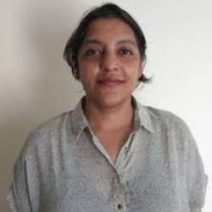
Meghna Agarwala
Assistant Professor of Environmental Studies at Ashoka University
Meghna is an Assistant Professor of Environmental Studies at Ashoka University. She received her PhD in Ecology, Evolution and Environmental Biology from Columbia University, and an MS from Yale School of Forestry and Environmental Studies. Prior to joining Ashoka University, she was a postdoctoral research scientist at Earth Institute, Columbia University, and Centre for International Forestry Research (CIFOR), Bogor, Indonesia.
Her current projects focus on long-term impacts of climate change on forest dynamics, ecosystem services of plantations, and human-elephant conflict. Her current work is funded by SERB and Swedish Research Council and is located in Odisha, Madhya Pradesh, Himachal Pradesh and Nepal. She also consults for geo-spatial and forestry projects.
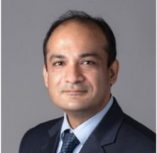
Vibhu Agarwal
Founder and Head of Miimansa
Vibhu is an entrepreneur-scientist with a track record of innovation, product development, and commercialization in health tech. With over twenty-five years of experience, he has led some of the most prolific quantitative teams in the area of life sciences, clean tech as well as computational linguistics. A former national awardee, he sold his first venture in computational linguistics to Nuance Communication, a global leader in speech and language technology.
He holds a Ph.D. in Biomedical Informatics and Statistics (minor) from Stanford University, an MBA from Hitotsubashi University (Tokyo, Japan), and a B. Tech from the Indian Institute of Technology (Kanpur, India).
Vibhu
Agarwal

Vibhu Agarwal
Founder and Head of Miimansa
Vibhu is an entrepreneur-scientist with a track record of innovation, product development, and commercialization in health tech. With over twenty-five years of experience, he has led some of the most prolific quantitative teams in the area of life sciences, clean tech as well as computational linguistics. A former national awardee, he sold his first venture in computational linguistics to Nuance Communication, a global leader in speech and language technology.
He holds a Ph.D. in Biomedical Informatics and Statistics (minor) from Stanford University, an MBA from Hitotsubashi University (Tokyo, Japan), and a B. Tech from the Indian Institute of Technology (Kanpur, India).
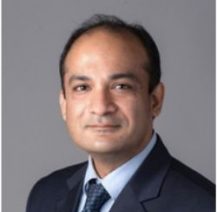
Vibhu Agarwal
Founder and Head of Miimansa
Vibhu is an entrepreneur-scientist with a track record of innovation, product development, and commercialization in health tech. With over twenty-five years of experience, he has led some of the most prolific quantitative teams in the area of life sciences, clean tech as well as computational linguistics. A former national awardee, he sold his first venture in computational linguistics to Nuance Communication, a global leader in speech and language technology.
He holds a Ph.D. in Biomedical Informatics and Statistics (minor) from Stanford University, an MBA from Hitotsubashi University (Tokyo, Japan), and a B. Tech from the Indian Institute of Technology (Kanpur, India).
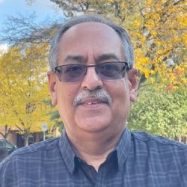
Subhashis Banerjee
Head of the Department & Professor of Computer Science, Ashoka University
Subhashis was with the Department of Computer Science and Engineering at IIT Delhi from 1990 till August 2023. From June 2021 to May 2023 he was at the Ashoka University on leave from IITD. At IITD he has held the Ministry of Urban Development, Microsoft and Naren Gupta chair professorships. He was the head of the department of computer science at IIT Delhi between 2004-2007 and head of the computer services centre between 2009-2014. Subhashis is also associated with the School of Public Policy and the Centre for Transportation Research and Injury Prevention at IIT Delhi.
Subhashis’ primary areas of research are computer vision and machine learning, with a special emphasis on geometric algorithms. He has been on the editorial boards of the International Journal of Computer Vision and Computers and Graphics, and has published in leading journals and conferences.
Subhashis graduated in electrical Engineering from Jadavpur University in 1982 and did his Master’s and PhD from the Indian Institute of Science in 1984 and 1989 respectively.
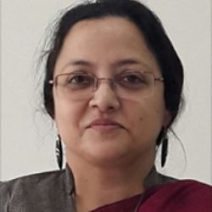
Lipika Dey
Professor of Computer Science at Ashoka University
Lipika is a Professor of Computer Science. She was earlier a Chief Scientist at Tata Consultancy Services (TCS), Research, where she was heading research on the theme of Economic and Financial Intelligence. Her research interests are in the areas of Artificial Intelligence, Natural Language Processing and Data Analytics. She has a keen interest in the fields of healthcare and sustainability analytics. Prior to joining TCS, Lipika was a member of the faculty at the Department of Mathematics, IIT Delhi. Lipika was elected to the Fellowship of the Indian National Academy of Engineering in 2021. She was also awarded the Distinguished Scientist award by TCS in 2012.
Lipika has a PhD in Computer Science and Engineering from IIT Kharagpur, where she had also done her graduation and post-graduation in Mathematics and Computer Science. As a member of the Association for Computing Machinery (ACM), the world’s largest educational and scientific computing society engaged in the advancement of computing as a science and a profession, Lipika is actively involved in mentorship programs for PhD scholars and activities to promote Women in STEM.
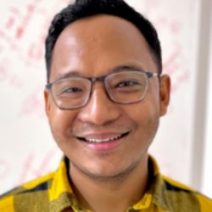
Rintu Kutum
Faculty Fellow, Computer Science at Ashoka University
Rintu is a Faculty Fellow/Data Scientist at the Department of Computer Science, Ashoka University. He was the project coordinator (postdoctoral fellow) of “AL/ML for Healthcare” theme under the “City Knowledge Innovation Cluster – Delhi Research Implementation and Innovation” project at the Center for Excellence in Healthcare, IIIT-Delhi. His Ph.D. was in the area of Machine Learning, Genomics, and Gene regulatory Networks from CSIR-Institute of Genomics & Integrative Biology, New Delhi. He uses open source scientific computing languages such as R, Python, Julia etc., to accelerate his scientific research and promote via training.
During his Ph.D. tenure, he has trained 22 scholars from various institutions across India. He has also been an eLife Ambassador during 2018-2019 and 2019-2020, and mainly worked on “Reproducibility research through Open Source Scientific Computing”. During this tenure, he organized 3 workshops with the help of various institutions; and has been actively working towards enhancing computer science literacy amongst life science scholars in India. He is one of the members, and instructor for Reproducibility for Everyone (R4E) Initiative. His long term interest is to train & nurture transdisciplinary scholars for doing collective research, and continues to work on the area of “Computational Health Sciences: Cellular Ecosystem to Public Health”.
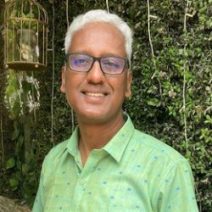
Venkatesh Rajamanickam
Professor of Industrial Design Centre at IIT Mumbai
Venkatesh is a Professor at the IDC School of Design, IIT Bombay. He is a HCI designer, educator and researcher. His Information Design Lab at IIT Bombay utilizes graphic design, interactive computer graphics, data-processing algorithms and emerging technologies to address challenging problems in data, design and art. His research focuses on data-based and visual understanding of a range of issues from public understanding of science, urban living, politics, education, transportation, to generative art.
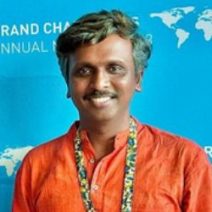
Ramachandran Thiruvengadam
Assistant Professor (Biochemistry), Pondicherry Institute of Medical Sciences
Ram is a resident of Pondicherry, India. He's a pediatrician-scientist, and researches in the domain of maternal-child health. He graduated from Madras Medical College, Chennai and All India Institute of Medical Sciences, New Delhi. He’s currently on the faculty at Pondicherry Institute of Medical Sciences, Puducherry, India, and an Investigator in the Interdisciplinary Group for Advanced Research on Birth Outcomes – DBT India Initiative (GARBH-Ini).
His specific interest is in perinatal epidemiology to identify causal risk factors of preterm birth and fetal growth restriction, to be able to design effective interventions to prevent them. Trained as a translational researcher, he works extensively on the development and validation of clinical prediction models for birth outcomes. He has extensive experience in scientific and technical writing, and regularly publishes scholarly articles in peer-reviewed scientific journals.
Want to know more?
Our team will be happy to answer any questions you might have or help you with the enrollment process.
Who Should Take This Programme?
ashoka advantage
Register to receive Prospectus & Application
Submit Application with a simple Statement of Purpose
Once selected, complete payment to join Cohort
A Transformative Learning Experience

“A great cohort, exciting professors, a bit of theory, a bit of practical, everything blended together as a unique experience……and I think at this stage of my life doing something like this energises!”
UMA BALAKRISHNAN,
CHIEF DESIGNER
A Transformative Learning Experience
I gained a solid understanding of the data science workflow, including data acquisition, cleaning, exploration, analysis, modeling, and communication of results.
- Chandanapriya Dhanraj
My learning experience was excellent, and the program exceeded my expectations. The modules that intrigued me the most were ML, GIS, and visualization.
- Dipti Singhania
I discovered new methods of data analysis using satellite and GIS data, and learned about various ML classification models. Despite the short duration, the course provided clear directions and focus areas for the future. Sessions with industry experts were particularly insightful, offering a glimpse into current industry practices.
- Saiyeed Mashkur Al Hakim
A Transformative Learning Experience
My learning experience was excellent, and the program exceeded my expectations. The modules that intrigued me the most were ML, GIS, and visualization.
- Dipti Singhania
This was one of the most engaging virtual course I have ever taken. Though it was virtual, the instructors made it a point to make sure everyone attending were engaging and were on the same page.
- Vinoj Raj
I discovered new methods of data analysis using satellite and GIS data, and learned about various ML classification models. Despite the short duration, the course provided clear directions and focus areas for the future. Sessions with industry experts were particularly insightful, offering a glimpse into current industry practices.
- Saiyeed Mashkur Al Hakim
Partners





